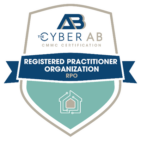Small Business Cybersecurity Explained
Are you a small business owner who doesn’t make cybersecurity a high priority? You’re not alone. According to the May 2022 CNBC/SurveyMonkey Small Business Survey, only 5% of small business owners believe cybersecurity is their most urgent threat.
However, while other factors draw more attention from business owners, that doesn’t mean various cybersecurity threats are not on their radar.

The same CNBC/SurveyMonkey survey indicates that nearly 40% of small business owners are very or somewhat concerned that their company will be the target of a cyberattack in the next 12 months.
Why do Cybercriminals Prefer Small Businesses?
While many believe that only Fortune 500 companies and other large organizations are vulnerable to cyber threats due to their large size and substantial financial assets, smaller companies are also at considerable risk. The 2020 Data Breach Investigations Report prepared by Verizon indicates that 43% of cyberattacks target small businesses
Hackers and other cybercriminals set their sights on small businesses for several reasons:
- They recognize that smaller companies don’t always take cybersecurity seriously and therefore do not take the appropriate precautions.
- Smaller business computer networks often serve as a gateway to the systems of the larger organizations with which they conduct business.
- These companies are easier to coerce or manipulate when seeking ransomware payoffs or sensitive customer data.
- They may not have the technical expertise or financial resources to mount an effective cybersecurity defense.
- Small organizations often store a substantial amount of customer information but implement less stringent protection measures than large companies.
What Are Common Cyber Threats for Small Businesses?
Smaller organizations face many of the same cybersecurity risks as their larger counterparts:
Phishing
In a typical phishing scheme, the hacker sends an email from what appears to be a legitimate source. The message often contains an enticing link or attachment. When recipients click on these, they inadvertently release malware that infects the network and can perform a wide range of disruptive or damaging functions.

Ransomware
Ransomware involves infecting computer networks with malware that locks out authorized users and prevents them from accessing the data. The business must pay a sum of money determined by the hacker to regain control of the network.
Inside Attack
Small business cybersecurity threats don’t always come from outside sources. A company employee with the appropriate administrative privileges can also unleash an internal attack to access sensitive data, release malware, or conduct other damaging actions.
Virus
A virus is a program or piece of computer code that can replicate itself and spread between the computers within a network. A virus can corrupt the system, destroy data, and perform many other malicious tasks that can harm a small business’s operations.
APT
An advanced persistent threat (APT) is a long-term business cybersecurity breach that involves breaking into a network gradually and subtly to avoid detection. This methodical process enables the attacker to establish multiple routes within the system. Consequently, detecting and repairing only one or two breaches often has little impact on the hacker’s ability to infiltrate the network.
Zero-Day Attacks
Zero-day refers to a vulnerability that developers are unaware of until after an attack occurs. These software and program flaws can go undetected for several months or years.
MitM Attacks
Many small-business transactions involve an exchange of goods, services, or data between two parties. A man-in-the-middle (MitM) attack occurs when a hacker installs malware that intercedes in these transactions and steals sensitive information. An unsecured Wi-Fi network is often the vehicle that provides relatively easy access for the cybercriminal.
Password Attacks
Stealing passwords is another way hackers can access a small business’s computer network. They may implement several processes to gain this information, including guessing, utilizing specially designed programs that combine various dictionary words, and attempting to track users’ keystrokes as they type login information.
What are Cybersecurity Best Practices for Small Businesses?
Maintaining cybersecurity for small business environments requires adhering to a series of best practices:
Continuous Employee Training
Human error often opens the door to a cyberattack. Your employees should receive regular cybersecurity training and reminders regarding how to avoid practices that could lead to a data breach. Examples include how to recognize a potential phishing email, creating strong passwords and updating them frequently, providing tips for using the network safely, and instituting procedures for handling sensitive customer information.

Did you know 90% of successful cyber attacks gain entry from a click in a phishing message? Core offers training that will deliver easy-to-digest, relevant training to help prevent this. We will help your favorite people (even family) learn to recognize and not click on emails that could harm your company. If you’d like crazy, affordable training for your people, just email us today for a free quote and ask about Phishing Training.
Update Computer Software
Performing the recommended software updates can significantly enhance cybersecurity for businesses. These updates often include patches, which are program changes designed to make fixes and improvements, including correcting security vulnerabilities. You should also consider replacing obsolete software programs with the latest versions.
Secure Your Networks
Take the appropriate steps to protect your networks and reduce their vulnerability. Set up a firewall to prevent outsiders from accessing private network data, and conceal your Wi-Fi network by ensuring it does not broadcast any valuable names. If yours is among the growing number of small businesses that allow employees to work from home, verify that remote workers are using a firewall to protect their systems.
Control Network Access
Since data breaches often result from user mistakes or intentional acts perpetrated by employees, limiting access to your computers and networks is crucial. Monitor your authorized users and only grant administrative privileges to IT personnel and trusted staff members.
Learn More About Cybersecurity for Small Businesses
Discover the best ways to protect your business from cyberattacks and other network security threats. Contact Core Business Solutions today. Core Business Solutions is a CMMC registered provider organization (RPO).




